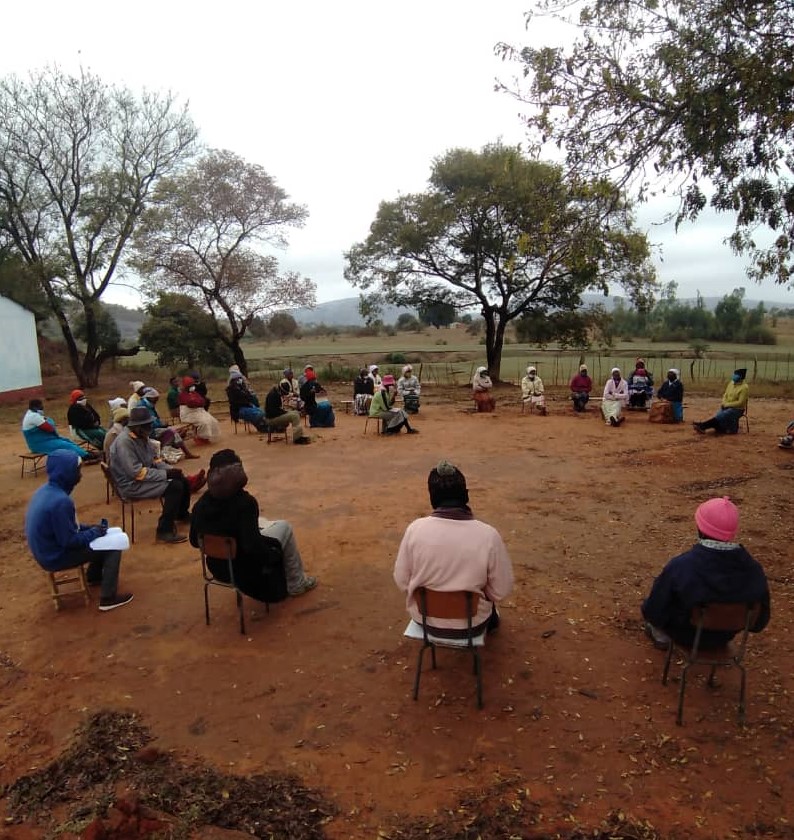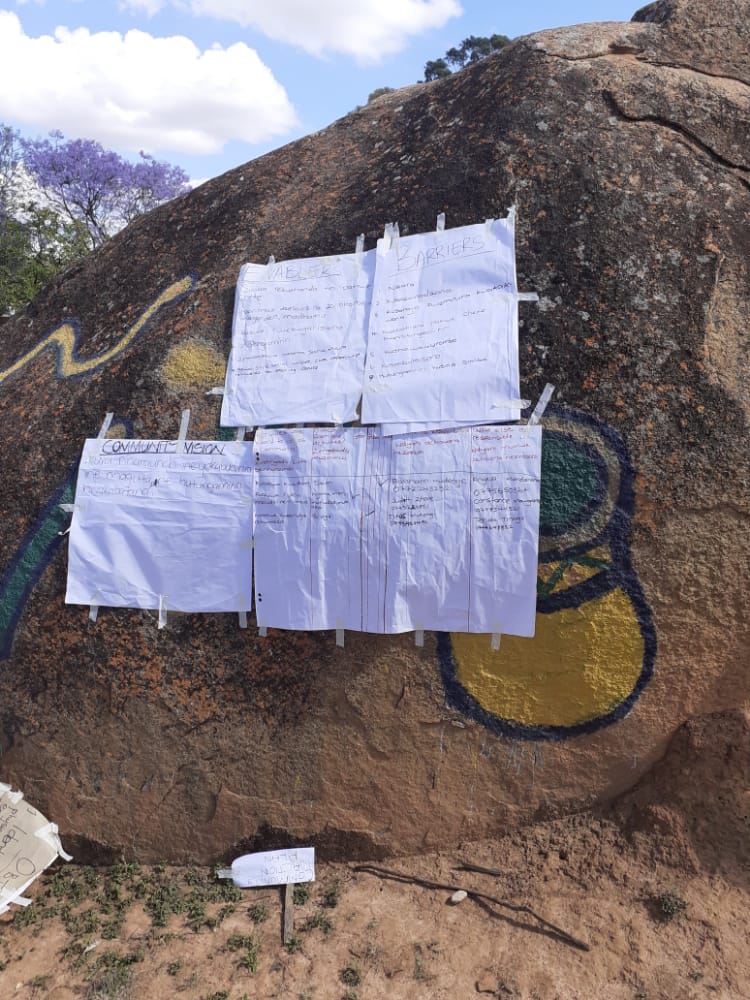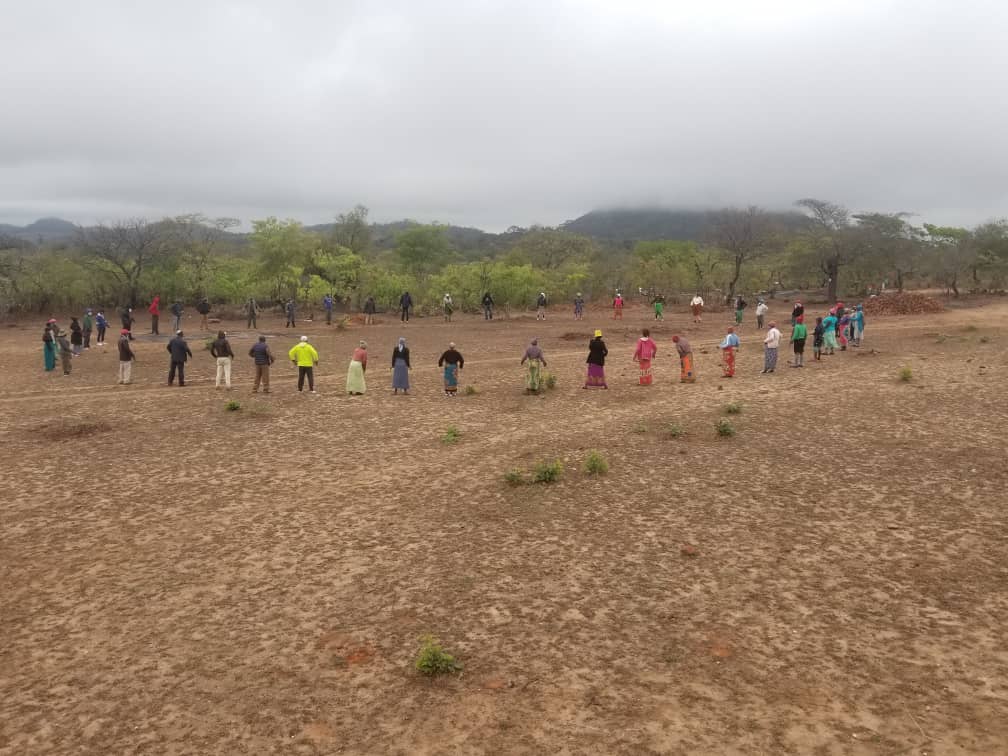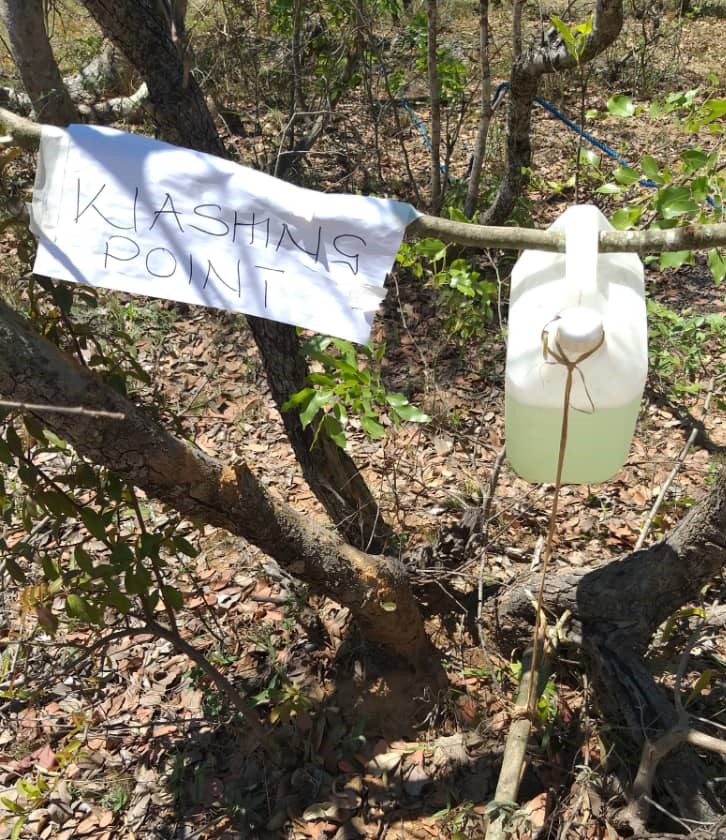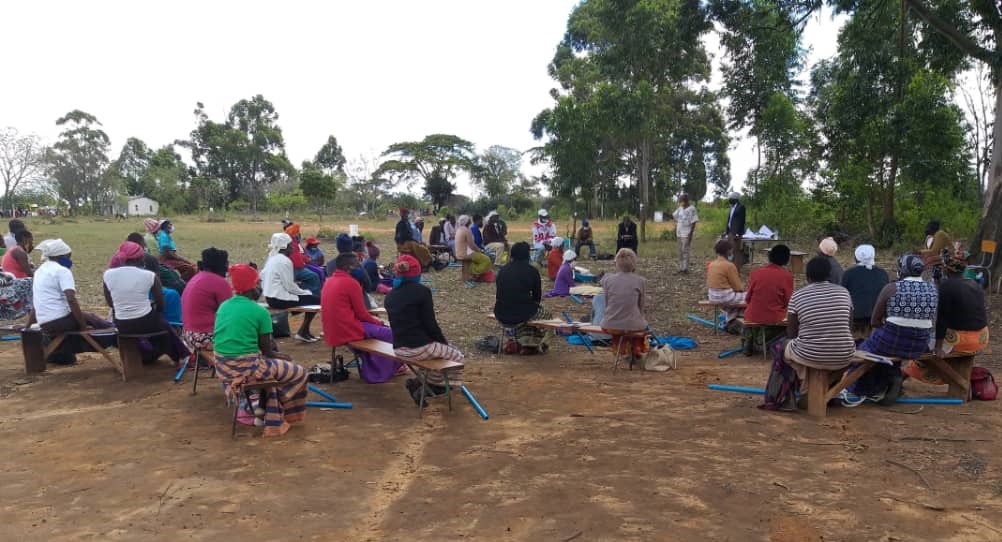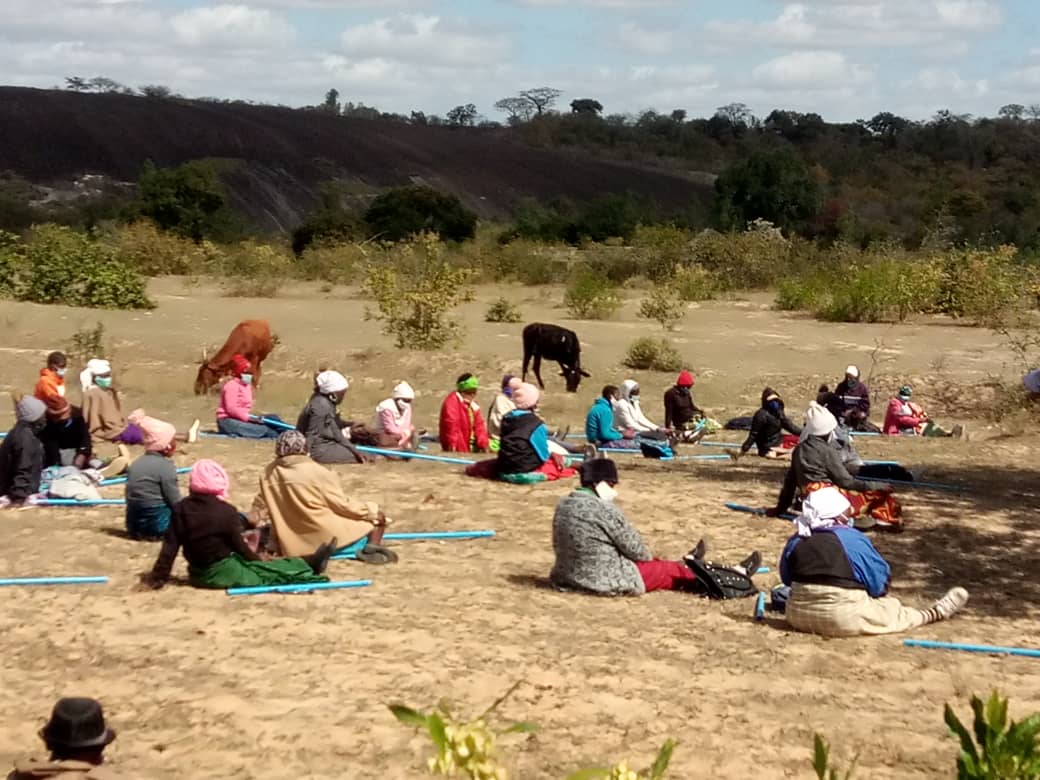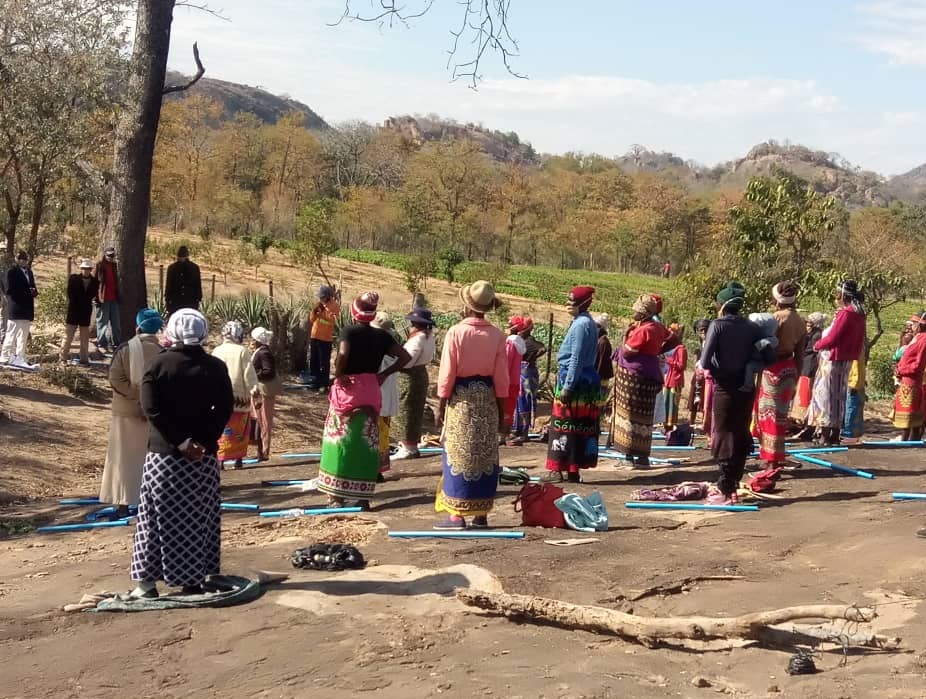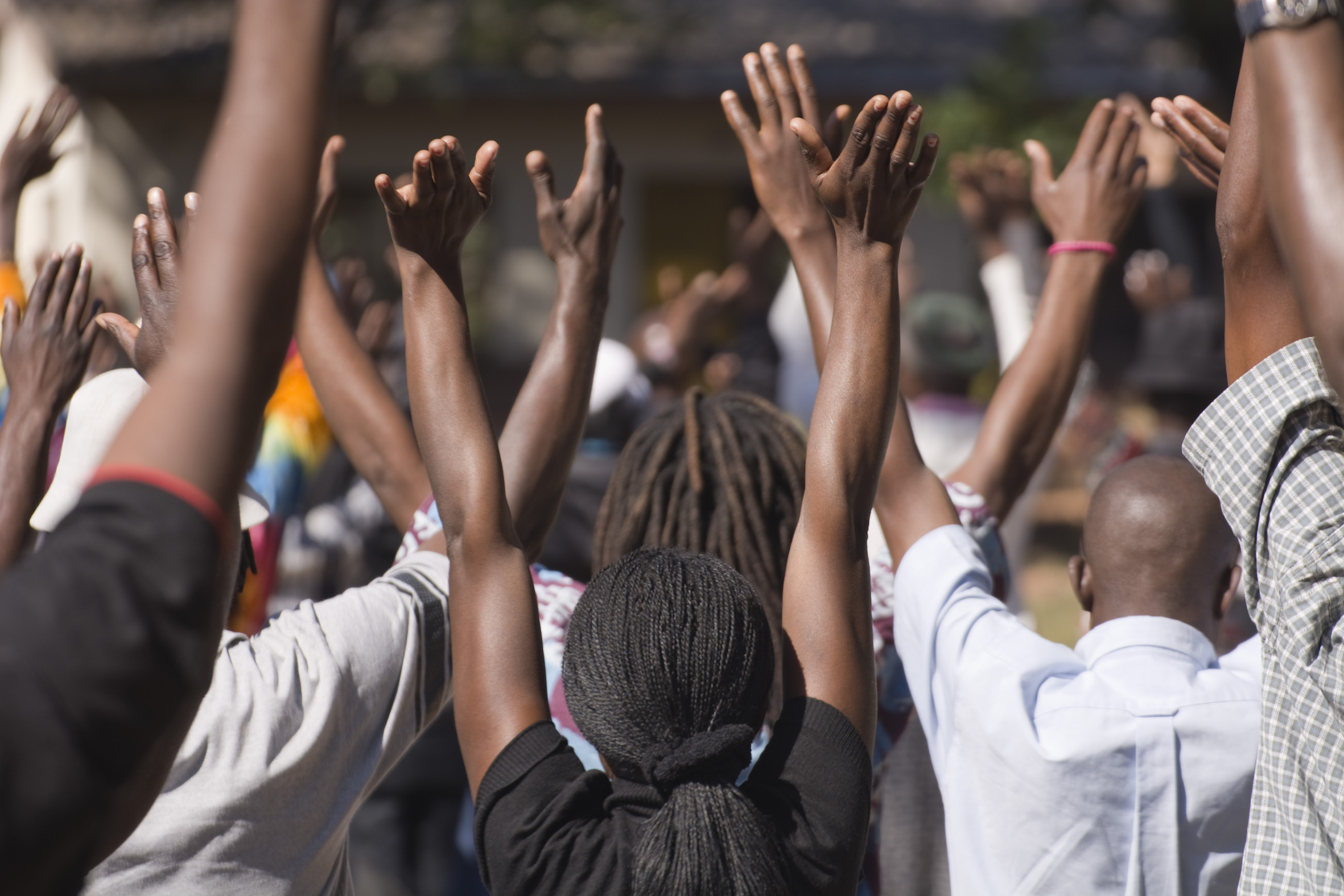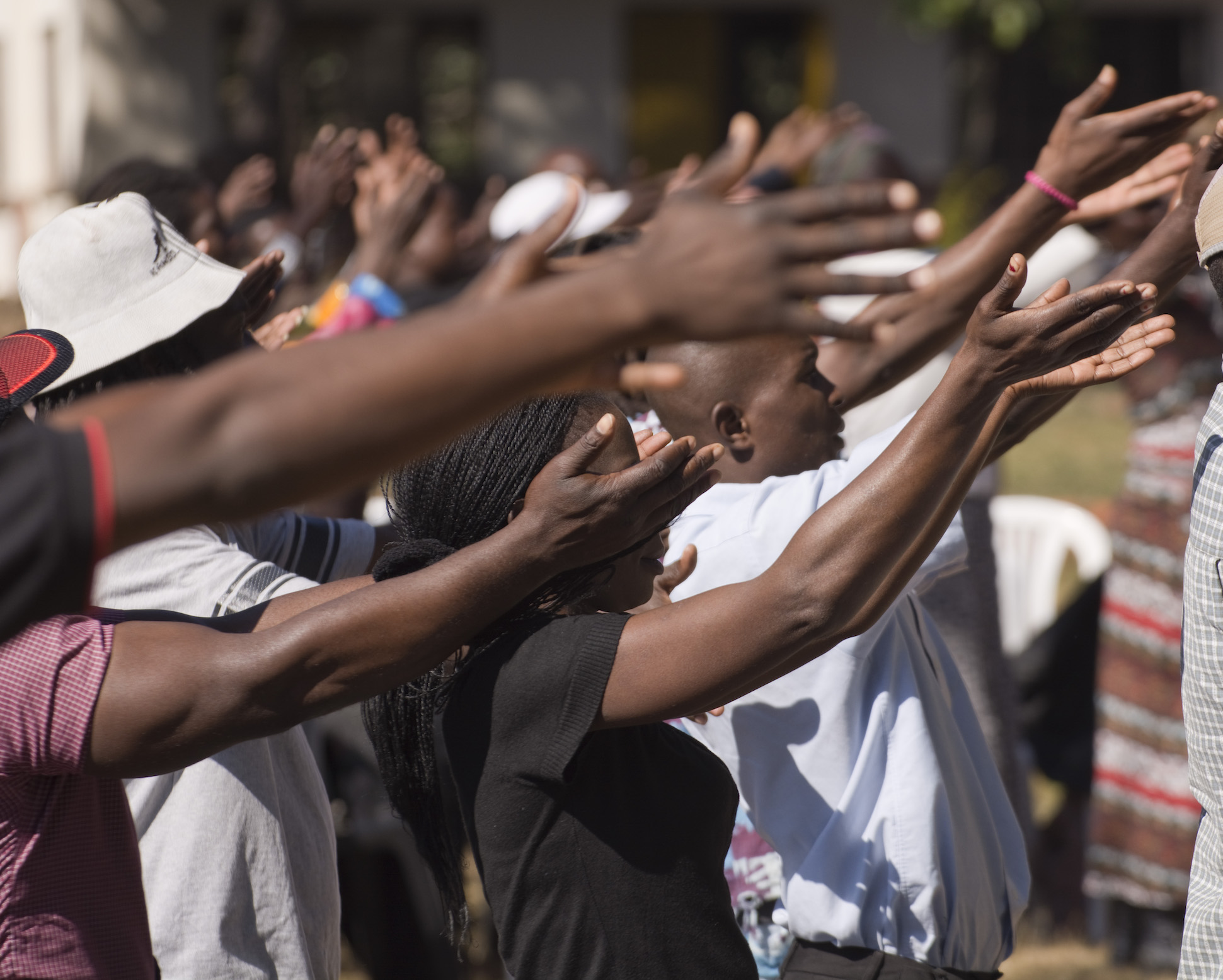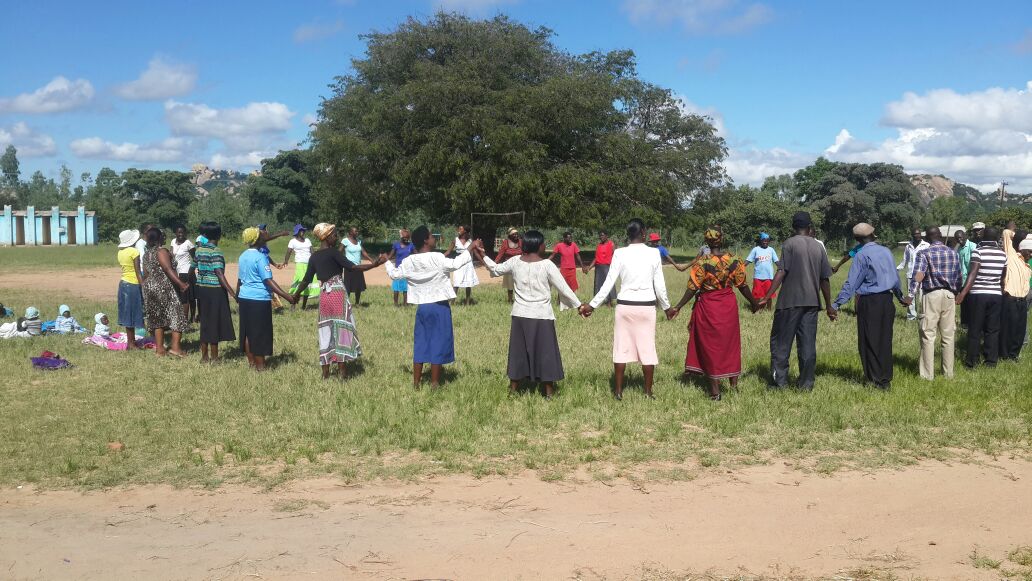Following the outbreak of the COVID-19 pandemic, Zimbabwe, like the rest of the world, declared a state of emergency on 20 March 2020. A nationwide lockdown was effected on 30 March 2020 and reviewed every fortnight thereafter. Tree of Life suspended all in-person activities complying with WHO and the Government of Zimbabwe measures to curb the spread of COVID-19. This included travel and business activities restrictions. The measures came at a time when COVID-19 awareness and psychological support was much needed by communities with pre-existing vulnerabilities. The restrictions increased the vulnerabilities and risky behaviours by those in urban and peri-urban communities, whose daily livelihoods activities had suddenly come to a stand-still. The sudden significant loss of income coupled with limited access to basic food supplies, resulted in increased violence especially within homes. Men and women found their ability to support and provide for their families undermined making life stressful and often traumatic, with women often being more affected.
It is with this background that ToL designed Psycho-Social Support (PSS) training materials, combined with other professional resources, to ensure continuity of Mental Health and Psychosocial Support (MHPSS) care for communities with pre-existing pressures/stresses and now burdened with the effects of COVID-19. The materials designed and developed are for use on virtual platforms. Initially, the materials were piloted with the youth, within the context of preventative measures, and to promote resilience. Over time, this was extended to additional organisations as well as general ToL community networks, as they proved to be effective and relevant across all age groups. More materials were later designed focusing on identified needs through ongoing dialogue with the Field Officers (FOs) and Community Facilitators (CFs) to generate innovative systems thinking using the Action Learning Cycles (action, reflection, learning and planning). This process is empowering and generates innovative ways of working virtually. It created a huge demand for our work and enabled ToL to significantly increase its reach, remaining relevant and effective during the pandemic.
The training modules were designed and delivered with technical support from our consulting psychotherapist. The materials included follow-up supervision, restorative debriefing, and additional capacity-building activities for the ToL Field Officers as the programme was rolled out. The initial training focused on health sensitisation and the provision of basic psychosocial support relating to lockdown or social-distancing measures. It also included contact details of relevant organisations and of reporting hotlines dealing with abuse, such as sexual exploitation, gender-based violence and child abuse. Training thereafter was provided in response to participatory feedback from the communities on the following:
- Ongoing general Health education & COVID-19 awareness on current information;
- Checking myths and facts;
- Self-care & Stress Management;
- Risky Behaviour;
- Grief & Loss types, Stages, Support mechanisms;
- Grief under COVID-19: Impacts of restrictions on traditional and cultural funeral rites;
- Alternatives on supporting communities mourning those who pass on. These include restrictions on funeral rites, and closure whilst complying with regulations;
- Inter-agency identification and community mapping for referrals;
- Virtual Psychological First Aid Training of Trainers.
The training has been strategically and intentionally rolled-out to the CFs in order to strengthen local-level psychosocial support that reduces stigma, and provides early access and early intervention among hard-to-reach client groups.
ToL also collaborated with other organisations in offering virtual PSS services to individuals, with the majority being women. In preparation for this, ToL Field Officers were trained in telephone counselling and crisis support before being allocated caseloads. In addition to the training, they are provided with ongoing support that include weekly supervision, debriefing and additional training based on their experiences. A narrative therapy style of counselling and solution-focused methodologies were found to be the most useful for this particular group of clients in view of their ongoing hardships and need for empowerment and resilience-building.
The virtual-engagement platforms (WhatsApp, etc.), and mechanisms have allowed for feedback between ToL and communities, to ensure appropriate and relevant response and designing of materials. Empowering methodologies such as provision of education, narrative-therapy tools, awareness of rights, and identified reporting mechanisms, including contact details, were extensively used. These have proved to be very useful and effective for both clients and community groups. Inter-agency identification and community mapping were also found to be essential in responding effectively.
In conclusion, the insightful questioning and reflective listening - while working closely with communities in the design, piloting and implementation of these programmes - was essential. This way of working is contributing to the huge success of the local and community response initiatives, even though the training sessions and rollout were undertaken virtually. It promoted and strengthened community ownership and participation, and allowed the CFs to continue supporting their communities. Ongoing community-needs assessments will continue to inform follow-up plans of initiatives (started during the lockdown) for implementation, as the measures are eased in line with the government regulations.
Evaluation comment from one community facilitator after the training on “Grief under COVID-19: Impacts of restrictions on traditional and cultural funeral rites”:-
Soon after the training, whilst I was still fresh, I had the opportunity to support a family who had lost a Father. I supported them on making decisions to only allow a few relatives to attend the funeral and to communicate the message well and clearly even to those who were far. I supported them to help their relatives understand that their coming was a risk to them and others, and that there were possibilities of people contracting COVID-19and spreading it. Considering that the Father had tested COVID-19 negative, there was room for complacency and people were going to carry on with their usual ways of mourning and grieving. I encouraged the few who were physically present to always wear masks, maintain social distancing and regular washing of hands. I encouraged relatives around to allow the wife to mourn without restricting her and shared the importance of doing so. I also had a session on loss and bereavement with her son (who recently graduated from a local university). I encouraged him to continue supporting the family through sharing information and encouraging adherence to COVID-19 regulations during such periods and always. He later sent a message thanking me indicating that the support the CF rendered was very helped and is helping to cope.












